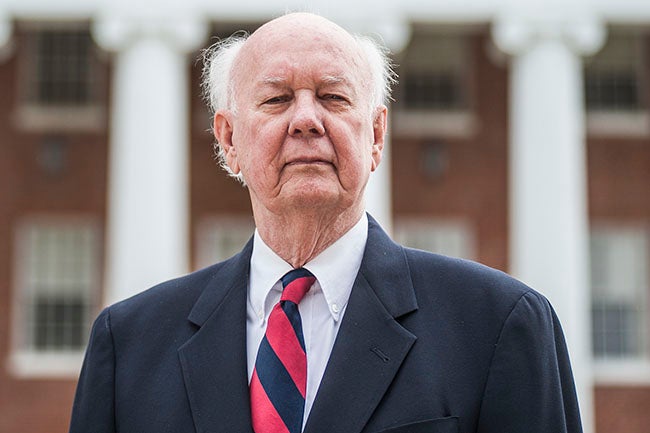Oxford author David Sansing discusses “The Other Mississippi” in new book
Published 8:58 am Sunday, September 2, 2018
Following a 50-year academic career, Mississippi historian and former University of Mississippi history professor David Sansing has written a new book.
The book, titled “The Other Mississippi,” is a compilation of articles, essays, speeches and lectures given throughout Sansing’s career.
“There are 27 articles in the book, and all of them are something I have done before. Some of them are 40 or 50 years old, and some of them I worked on last week,” Sansing said.
The book aims to identify the complexities of Mississippi’s history and the stereotypes that those outside the state have of those who live here. According to Sansing, the “other Mississippi” is the portion of the state, and its history, that most people don’t know, even some Mississippians.
“Mississippi’s national image, and the perception that many Americans have of us, is not altogether inaccurate. But it is incomplete. It is a truthful image, but it is only half of the truth, and we all know that a half-truth can be as bad or worse than no truth at all. I think Mississippi has always been, and still is, misunderstood because for every trait or characteristic that is typical of Mississippi there is a corresponding opposite trait that is equally typical,” Sansing writes in the opening chapter of the book.
The book features articles on everything from profiles on historic Mississippians such as Elizabeth Taylor Greenfield, a woman born into slavery in Natchez who became known as the “Black Swan” and used her four and a half octave vocal range to great success, including performing for England’s Queen Victoria.
Other figures include politician L.Q.C Lamar and Eugene Hilgard, who is considered the father of modern soil science.
Sansing also writes about the state’s history, including Mississippi’s state flag, the Mississippi State/Ole Miss athletic rivalry and the state’s evolving defense of slavery as the United States marched toward the Civil War and Mississippi seceded from the Union.
“The statement that most other southern states will say about the reputation of the south is ‘Thank God for Mississippi, they are worse than we are,” Sansing said. “But think of John Grisham, who has sold over 350 million copies of his books. He prides himself on being from Mississippi. We’ve given the world some of the best writers, singers and athletes, despite having such a difficult history.”
Oxford and the University of Mississippi take center stage in “The Other Mississippi,” with several articles dedicated to the founding of the University, the history behind the moniker of Ole Miss and the role of the University and the City of Oxford in changing the landscape of America during the Civil Rights Movement and James Meredith’s integration of Ole Miss in 1962.
“(Oxford) is the capital of the ‘other Mississippi,” Sansing said, “But that’s mainly because of the University being located here.”
Sansing credits his 11th-grade history teacher Nell Thomas with instilling in him a love for the subject. He earned bachelor and master’s degrees from Mississippi College, and a PhD from the University of Southern Mississippi, and began teaching history at Ole Miss in 1971.
“When I moved into Oxford and brought my children, it was like coming home,” Sansing said. “I have three children and five grandchildren, and eight graduates of Ole Miss. This is home and Ole Miss is in my blood.”
Sansing will sign copies of “The Other Mississippi” on Sept. 4 at Off Square Books beginning at 5 p.m. The historian also plans to give a brief presentation of Mississippi history and highlight several figures featured in the book during the event.






